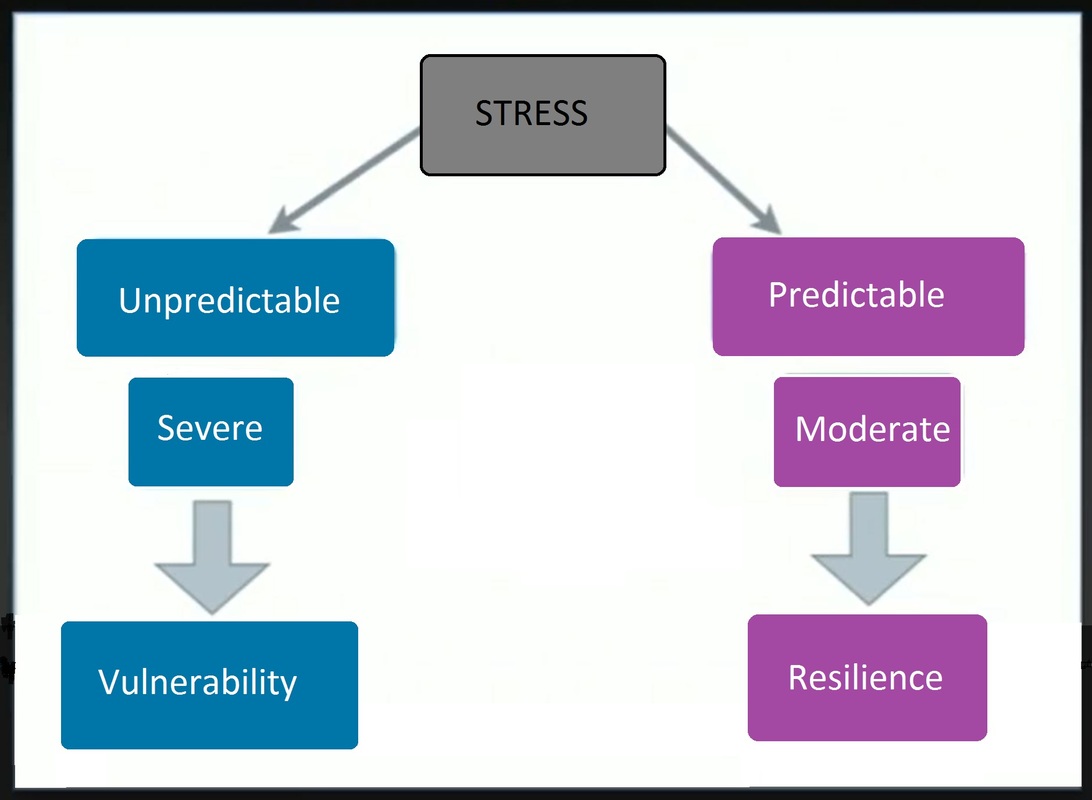Many studies have shown that unpredictable and chronic stress promotes a hypervigilant state in individuals. By hypervigilant, we mean that the individual is highly sensitive to his/her surroundings, hormonal changes, stress, weather changes, alcohol, changes in sleep habits, food additives, environmental pollution, etc.
On the other hand, predictable or moderate amounts of stress help to build resilience.
Early life stress, such as childhood abuse, neglect and loss, is a well-established major risk factor for developing depressive disorders later in life. There is also a high correlation with developing chronic pain (Franklin et al. 2011, Dias et al. 2014, Yao et al. 2014).
It was shown in rat studies that the offspring of “bad mothers” were more sensitive to pain and had a higher tendency to go into chronic pain states. We will describe this in more detail in the next post.
Early life stress, such as childhood abuse, neglect and loss, is a well-established major risk factor for developing depressive disorders later in life. There is also a high correlation with developing chronic pain (Franklin et al. 2011, Dias et al. 2014, Yao et al. 2014).
It was shown in rat studies that the offspring of “bad mothers” were more sensitive to pain and had a higher tendency to go into chronic pain states. We will describe this in more detail in the next post.


 RSS Feed
RSS Feed